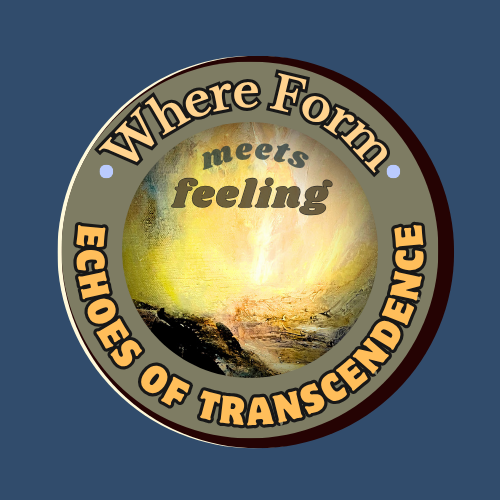
How to Value
Share
From where does our sense of value arise?

How are these three valued (one painting, one man, one woman)?
Value is a strange concept, when you consider it closely. The more you contemplate it, the more elusive it becomes. On first thought, we tend to think that valuing something means to make some kind of price estimate, and then tag the item accordingly. On reflection we also come to realise that there is no such thing as intrinsic value. In other words, value is not a fixed phenomenon, rather a perception. As such, evaluation is fluid and transient, rather than solid or permanent.
In the material world valuation is carried out comparatively; and the value we place upon an item is generally expressed in monetary terms. This valuation, in turn, becomes influenced by the valuations of others. Thus, at an auction for example, each bidder will have pre-decided their limit on how much they would personally value an auction item. The individual who places the most valuable bid then assumes ownership. Subsequently, when something similar comes up for auction, it is automatically compared with the previously sold item. In this way antiques or works of art can gain considerably in value.
But what about occasions when fewer people bid, or lower their pre-determined evaluation? The monetary value will then fall. This proceeds according to a simple concept involving supply and demand: when supply is short and/or demand is high, price goes up. When supply is plentiful and/or demand is low, then price comes down.
Does price equate with value? Considering that value is never intrinsic, only perceived, is it possible then for things to become less valuable? Indeed so! Consider times in history when life has been under severe threat. For example, in Poland during the 1940s, how valuable did the Jewish collector perceive his art collection to be, when his whole world was being turned upside down, his family being made homeless, with their very lives under threat of extinction? When comparisons of that nature are forced upon us, then the things we truly value most are dramatically highlighted. The security of life itself is thus seen to be of far greater worth to any human being than artefacts.
But even then, we haven’t quite tapped into the root of value. What can we say about value, for example, when a person surrenders his/her life, rather than compromise integrity over some closely held belief or principle? Then we would have to conclude that the perceived value of principle is ultimately greater than that of an individual life. A man might die willingly for the sake of principle. However, principle will always trace itself back conceptually to what is perceived to be beneficial for the greater number of people – or for the whole. In other words, value ultimately has its roots in the soil of life.
That being said, how do you or I value our own lives? The tendency is to value ourselves in accord with how things are valued materially – i.e. either by direct comparison with others or by taking notice from the world around us. Comparisons with other lives invariably have the effect of devaluing our own. The primary human tendency is to compare oneself unfavourably with others, and thereby suffer a loss of self-esteem. But comparisons can also at times lead to feelings of superiority, rather than inferiority over others, with a heightened sense of self-importance. However, we must not make the mistake of confusing self-importance with self-esteem. In reality superiority is only the flipside of the same coin of worthlessness. There is nothing we can do to others that we are not, in some way, doing to ourselves. If we put others down, we ultimately lower our own value.
When we take notice from the world around us for our personal sense of value, it becomes like a Dutch auction. Our life is sold to the highest bidder for control over it. This will be the one that has the most to gain by putting us down. It’s often an overbearing parent, unwittingly lacking in personal power, who puts us down; and the results often prove a perennial problem. Individuals can struggle for years to gain an appropriate inner perception of their own value, to counter the disapproving voice of authority.
Neither direct comparison nor taking notice from the world around us can finally help in the quest for personal value. The only worthwhile answer lies in reciprocation. Reciprocating involves others in our sphere – but never by way of comparison. Doing things that add value to other peoples’ lives is the essence of reciprocation, for by so doing, we get to value ourselves more. What goes out through the front portal, so to speak, always returns to us through the backdoor. We can add value by either word or deed; and reciprocation can be experienced in both self-esteem and monetarily value. Of course, no one can add intrinsic value to another person, but remembering that value is always perceived, we can certainly facilitate an increase in others’ perceptions of themselves.
If your habit has generally been to value yourself by either comparison to others or by hearing yourself devalued over and over, then you can begin to make the shift toward reciprocation by looking for ways to add value to other peoples’ lives. They needn’t be earth shattering ways; it’s often the little things that count. Develop habits of adding value. Make a metal note of when you do so. And couple this with remembering times in the past when you’ve added value to others in some way. Remind yourself regularly of such times, and thereby, in time, come to realise that that is who you really are – a valuable person. With persistence and determination, you’ll soon see the value of these new habits. And more importantly – experiencing yourself with a renewed sense of value.
